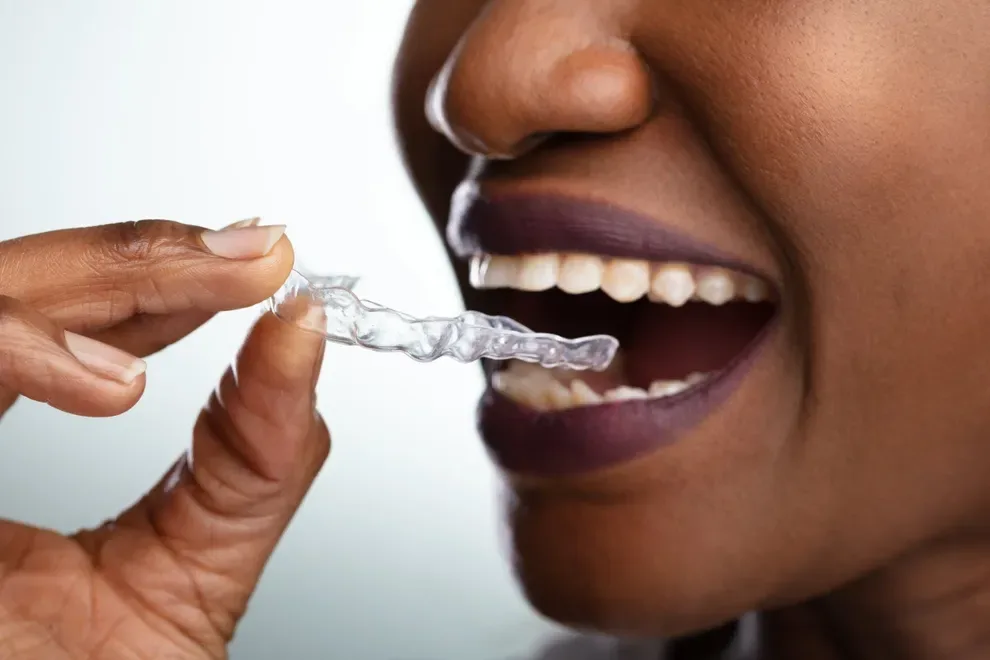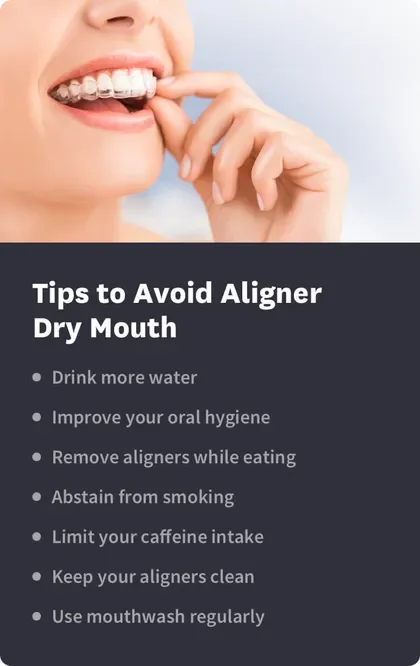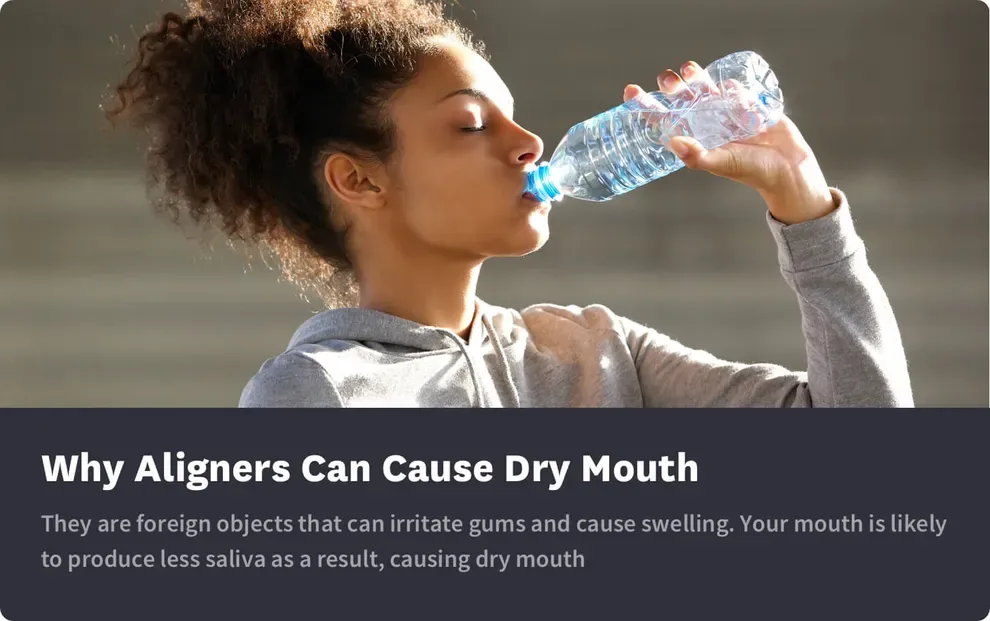Will My Aligner Cause Dry Mouth?

Table of Contents
- Causes of Aligner Dry Mouth
- How to Avoid Dry Mouth
- Do Aligners Cause Bad Breath?
Aligners are a potential cause of dry mouth. That’s because they are foreign objects that can irritate gums and cause swelling. Your mouth may produce less saliva as a result, causing dry mouth.
There are simple steps you can take to reduce dry mouth when using clear aligners, such as drinking more water, boosting your oral hygiene routine, and limiting caffeine intake.
What Causes Aligner Dry Mouth?
Dry mouth (also known as xerostomia) stems from a low supply of saliva. Since saliva functions to keep the mouth wet as it fights off bacteria, a lack of saliva leads to overall dryness. It also makes gum disease and tooth decay more likely because saliva acts as a natural cleanser in the mouth.
Causes of a low saliva production include aging, consumption of certain foods, some prescription medications, and habits such as smoking, sleeping with your mouth open, and wearing aligners.

While aligners are considered appliances that can improve periodontal health, they can contribute to dry mouth. Your body treats aligner trays as foreign objects, mostly because they can cause mouth irritation and gum swelling. Consequently, your salivary glands will secrete less saliva to minimize irritation, causing the mouth to dry.
Because aligner trays cover teeth for up to 22 hours a day or more, oral care specialists advise that you remain vigilant about improving your oral hygiene routine. Improved oral care can lessen the likelihood of complications like cavities, bad breath, yeast infections, and chewing and swallowing problems caused by dry mouth.
How to Avoid Aligner Dry Mouth and Bad Breath
In the event of dry mouth and bad breath, take the following steps:
Drinking plenty of water will help keep your mouth fresh, lubricated, as well as coax the salivary glands to discharge more saliva. Regular water intake will also benefit your overall health.
Always floss and brush your teeth after every meal and after taking a liquid other than water. Additionally, clean your tongue as it is a fertile ground for harmful bacteria to multiply.
Eating while wearing aligners will promote the buildup of bacteria. Drinking colored drinks will also discolor the trays and encourage bacteria growth. Don’t eat or drink fluids other than water while wearing aligners.
Smoking and caffeine are two major causes of dry mouth (and bad breath). Switching from smoking to vaping is not an effective alternative for smoking because it brings a separate set of issues. You can still drink coffee and tea; just limit your overall intake.
Clean the aligners after every meal using lukewarm water. Avoid using hot water as it will warp the aligners. Good aligner hygiene will help to combat bad breath.

Do Aligners Cause Bad Breath?
You need to wear aligners most of the day — about 22 hours — for them to effectively move your teeth. Covering your teeth with plastic for extended hours provides a conducive environment for bacteria accumulation. This accumulation could lead to bad breath if you don’t practice good oral hygiene.
The good news is you can reduce the likelihood of bad breath related to aligner wear if you simply brush and floss after every meal. Also, make sure to change your aligner trays out on the recommended schedule. Wearing them for longer than recommended increases the likelihood of bad breath.
FAQs
Aligners can lead to dry mouth because they may create gum irritation and swelling in some instances. Your mouth will produce less saliva to minimize the reaction, resulting in dry mouth.
When you first receive your aligner, your mouth will treat it as a foreign object and produce less saliva. Less saliva makes your mouth feel dry, and this translates to greater thirst. It’s common to feel thirstier when you wear aligners regularly, so combat the issue by drinking plenty of water and sucking on ice chips.
